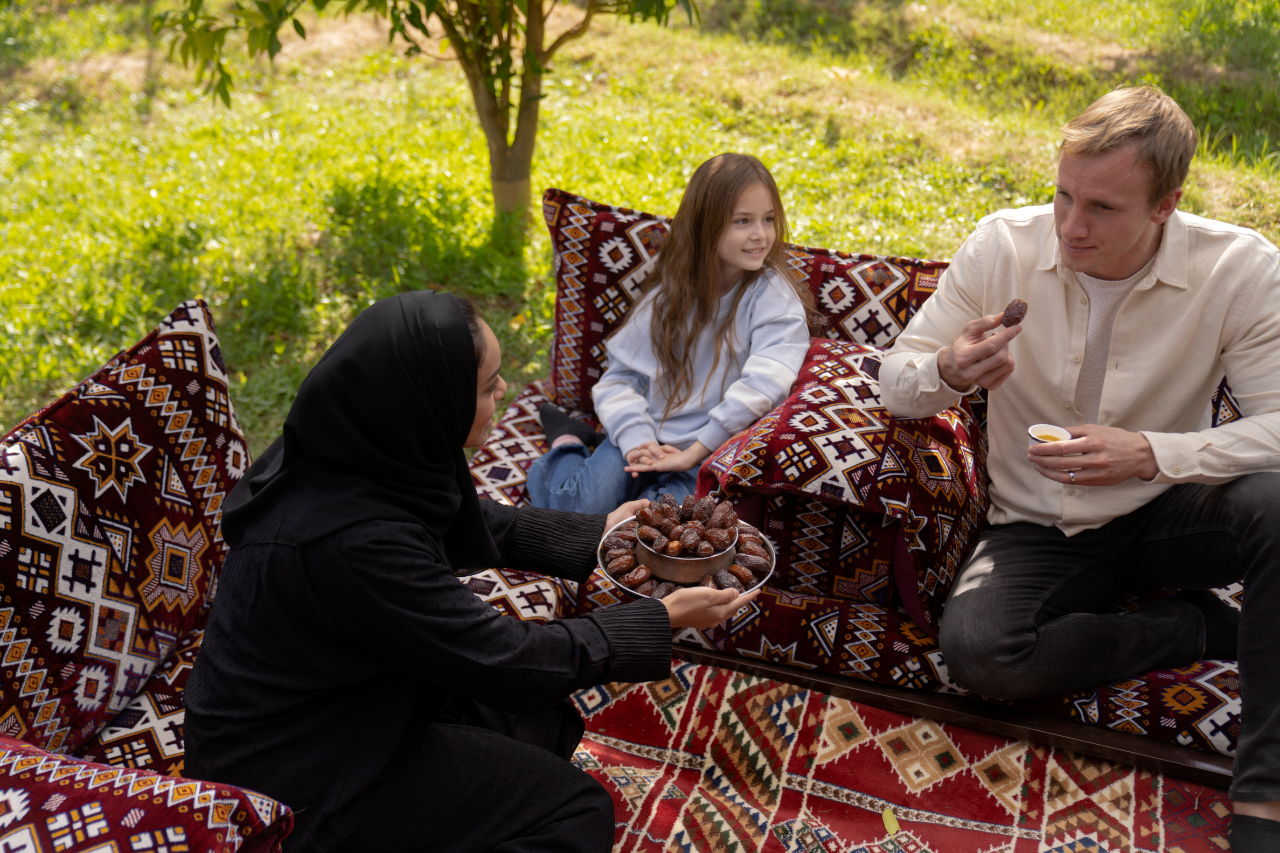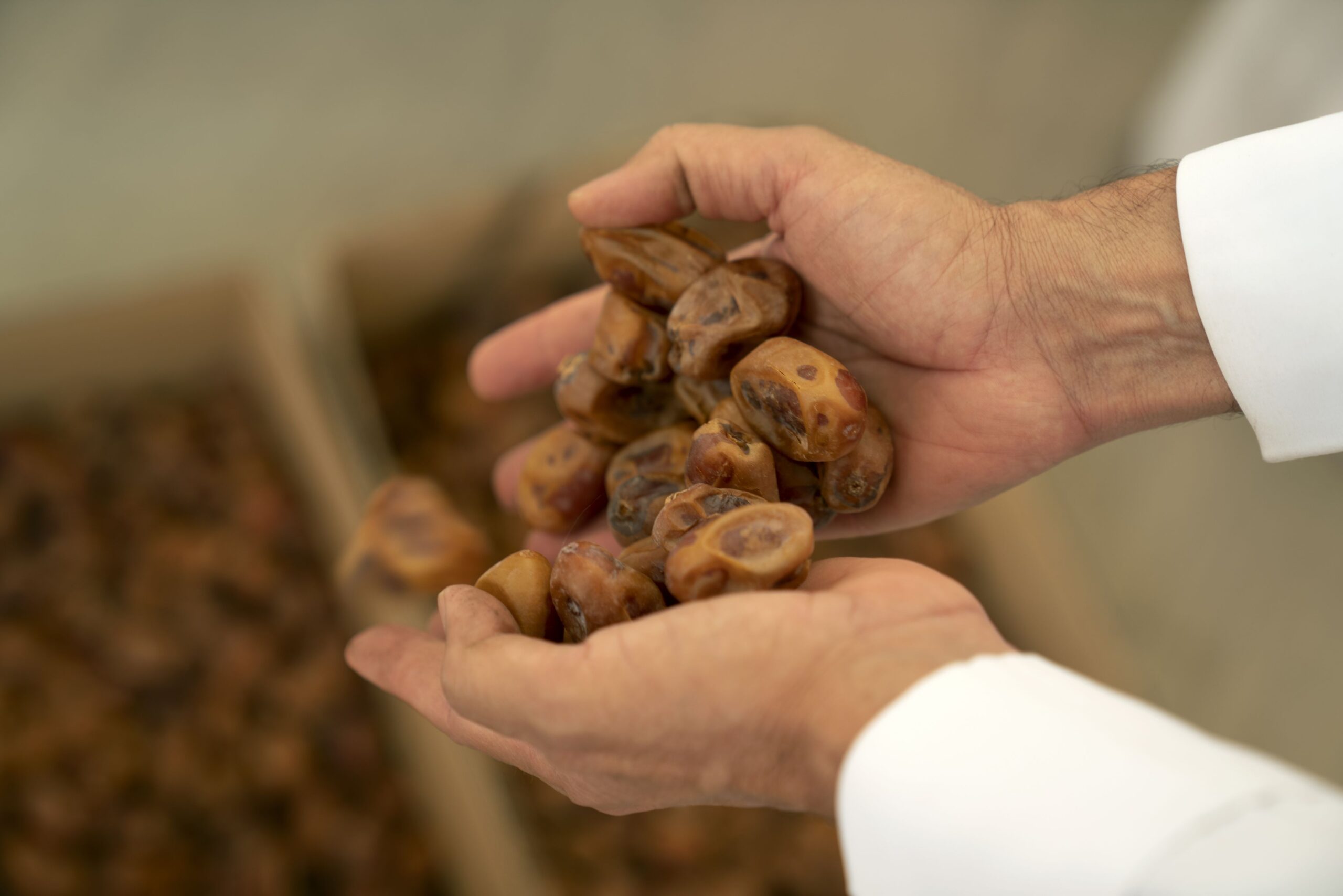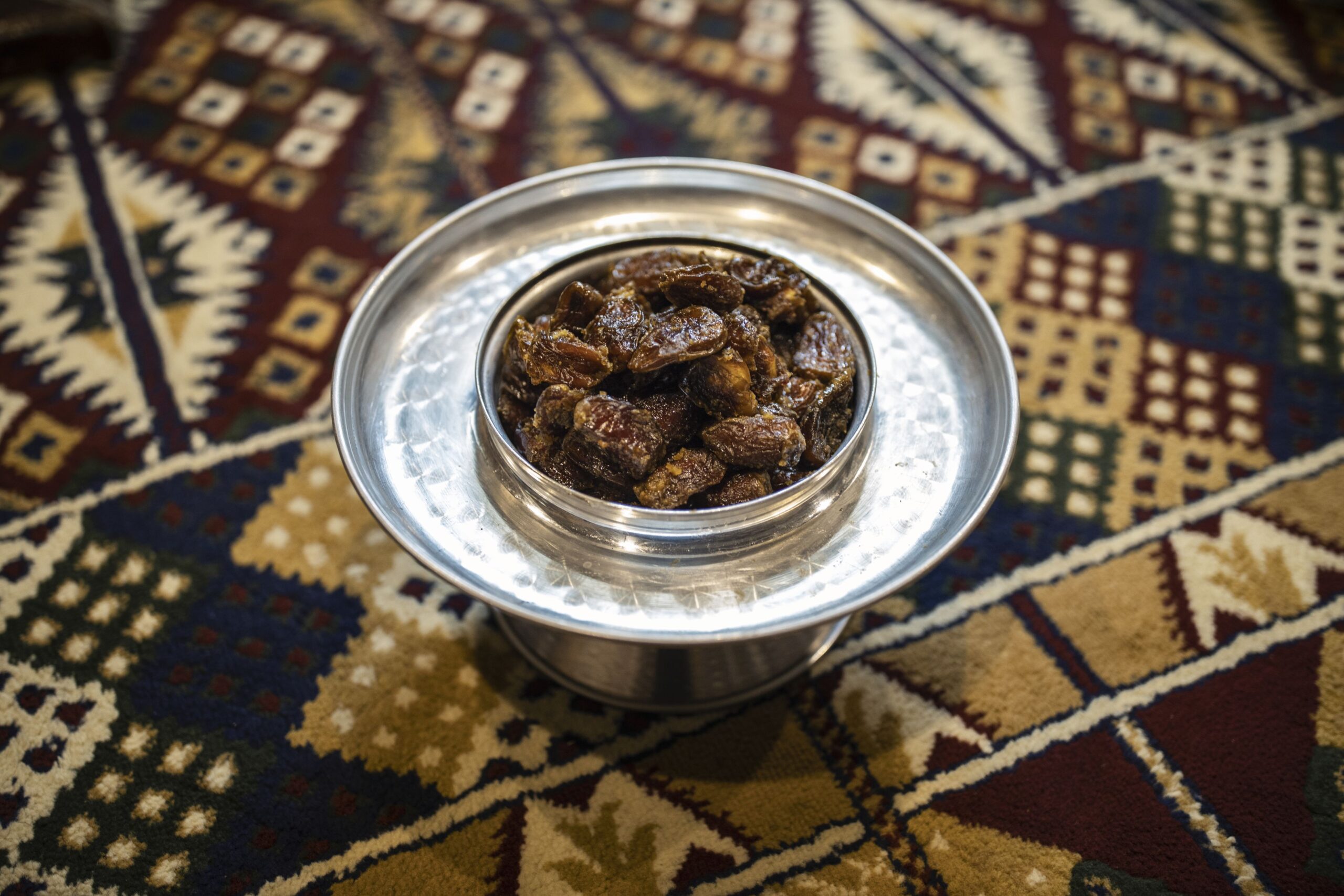
CULTURE & HERITAGE
Why are dates so important to Saudi culture?
Dates are an integral part of Saudi culture, reflecting tradition, hospitality, and the country's rich agricultural heritage.
Words by Palavi Kele
Saudi is one of the world’s largest date producing countries with an annual output exceeding 1.6 million tons in 2022. Dates have historically been a crucial part of Saudi culture. It is said that tribal Bedouins survived on dates and camel milk alone for long periods of time due to their rich nutrient and calorie content. It is no surprise that many Saudis still start and end their day with this superfruit.
Date palm cultivation in the Arabian Peninsula dates back to 4000 years. In fact, the date palm is mentioned in the Quran 22 times which speaks of its roots in Islam. A legend deeply ingrained in the Saudi culture is the narrative of how Allah created Adam from the earth and nurtured a majestic date palm (Nakhla in Arabic) from the remnants; forming a familial bond with the palm which is often referred to ‘aunt’ by Saudis. Another popular legend describes the Ajwa variety of dates as a ‘prophetic date’. These special dates are believed to have been consumed by Prophet Muhammad (pbuh) for their extraordinary health benefits and many Saudis consider them to be a source of blessing and consume them regularly.

Furthermore, dates are a symbol of hospitality, a core value shaping the Saudi culture. Be it a social gathering, an art gallery inaugural event, a wedding or a business meeting, you will always be welcomed with a cup of Saudi coffee and a bowl of sugary dates to balance the flavor. If you ask any Saudi to share their cherished memory of consuming dates, it’ll involve gathering at their family farmhouse and collecting fresh dates, cooking their grandma’s recipes of Mohalla, Hasawi cookies and Mahmoul or simply sitting together with their families after the Maghrib evening prayer and indulging in their favourite variety of dates and sipping on multiple finjals of aromatic Kahwah. “Even as a kid, I would sleep with dates in my pockets as that’s the first thing I wanted to consume after waking up!”, laughs a Saudi colleague. “I can’t imagine my life without dates”, shares another.

There are over 400 varieties of dates cultivated across the world with over 300 varieties produced in the Kingdom. Sukkari, Ajwa, Mejdool, Khalas, Sagai, Barhee are a few popular names. While all of them are a rich source of potassium, magnesium and vitamins B-complex and C; their sugar content may vary. For instance, Galaxi or Sukkari dates are high in sugar while Saggae is relatively low. An intriguing aspect of the date palm is its longevity, which can span up to a remarkable 120 years and requires up to 15 years to yield its first harvest. Interestingly, the Barhee variety of palm can yield five hundred kilograms of dates at a time!
Each date palm needs to be treated differently with respect to soil, water and climatic conditions. Farmers often joke that their palms are very moody and require conscious care. Saudi provinces of Al-Ahsa and Al-Qassim have been hubs of date cultivation for centuries as dates were an important commodity for trade and commerce in the Arabian Peninsula. Historically, they were traded along ancient caravan routes, including the famous Incense Route, which connected Arabia to the Mediterranean world.
A timeless tradition, dates today are a part of many religious and ceremonial events. During the Holy month of Ramadan, it is customary to break the day-long fast with dates and water or coffee; fostering a deep emotional connection with this desert fruit among many locals. Packaged date boxes also make for great cultural souvenirs and corporate gifts to build long lasting business relationships. Apart from their edibility, dates are a great topic for icebreakers and small talk in Saudi. Many Saudis consume dates daily as a quick and energy-boosting bite, especially during the afternoon and in between meals. Cafes and restaurants in the capital city of Riyadh are buzzing late into the nights with locals catching up over Shisha and coffee, savouring their beloved snack along with it.

Every August, the governorate of Buraidah in Al-Qassim province hosts the world’s largest dates auction. Hundreds of local farmers gather at dawn with their produce and sell cartons loaded in their pick-up trucks. The highlight of the festival is observing the auctioneers shout out their competitive bids to potential buyers, all from the vantage point of standing atop their trucks’ roofs. Sales at the auction can go up to as high as USD 5 million a day during peak season. A highly recommended experience that’s worth the three-hour drive from Riyadh for a weekend gateway. Other festivals to take note are the Riyadh Seasonal Date Fair (Aug-Sep), AlUla Dates Festival (8. Sep-11. Nov 2023) and the Al-Fankha Festival (Oct).
In essence, dates remain an integral part of Saudi culture, reflecting tradition, hospitality, and the country’s rich agricultural heritage. They are enjoyed in various forms and on diverse occasions, showcasing their versatility and significance in contemporary Saudi society.
Practical information

Visas
It’s surprisingly simple and easy to get an e-Visa for Saudi and the process is very similar to applying for an ESTA for the USA. Over 50 nationalities are eligible to apply for an e-Visa, including people from the UK and USA, with it costing (at the time of writing) 535 Saudi riyals (about £115 or US$143). Applications are swift and nearly all applicants will receive a response within three working days – most within 24 hours. To apply for your Saudi e-Visa, visit the official Saudi Tourism Authority website. If you’re from the USA, UK or the Schengen Area, you can also apply for a visa on arrival into Saudi. It’s slightly cheaper than an e-Visa, too, at SAR480 (about £102 or US$128).

Getting there & around

Local customs
To really embrace Saudi life and pay respect towards its traditions, there are a few local customs you should abide when travelling around the country. Both men and women should wear clothing that covers their elbows and below their knees when out in public. If you’re heading to the coast, it’s still expected you dress modestly. When meeting and greeting locals, whether it’s a market stallholder or a private guide, say hello with ‘salam alaykum’, which means ‘peace be upon you’, as well as offering a handshake.

Weather
You might think it’s hot all year round in Saudi but it’s a little more nuanced than that. The best time to visit Riyadh is between October and March, when temperatures can dip as low as 20°C during the daytime and rarely exceed 30°C. Summer months in Riyadh can get extremely hot, with temperatures often above 40°C between June and September.
Is English spoken in Saudi?
Arabic is the official national language but English is widely spoken.
What is the currency of Saudi?
The currency of Saudi is the riyal, with the current rate (at the time of writing), around SAR4.76 to the UK£. You’ll need to pre-order money before you travel, as in the UK it’s not usually stocked in currency exchange booths.
What’s it like travelling in Saudi as a female?
We think you’d be surprised! To find out more, read our first-hand account on what it’s like to travel in Saudi.
What’s the time difference in Saudi?
Saudi follows Arabia Standard Time (GMT +3) all year round.



